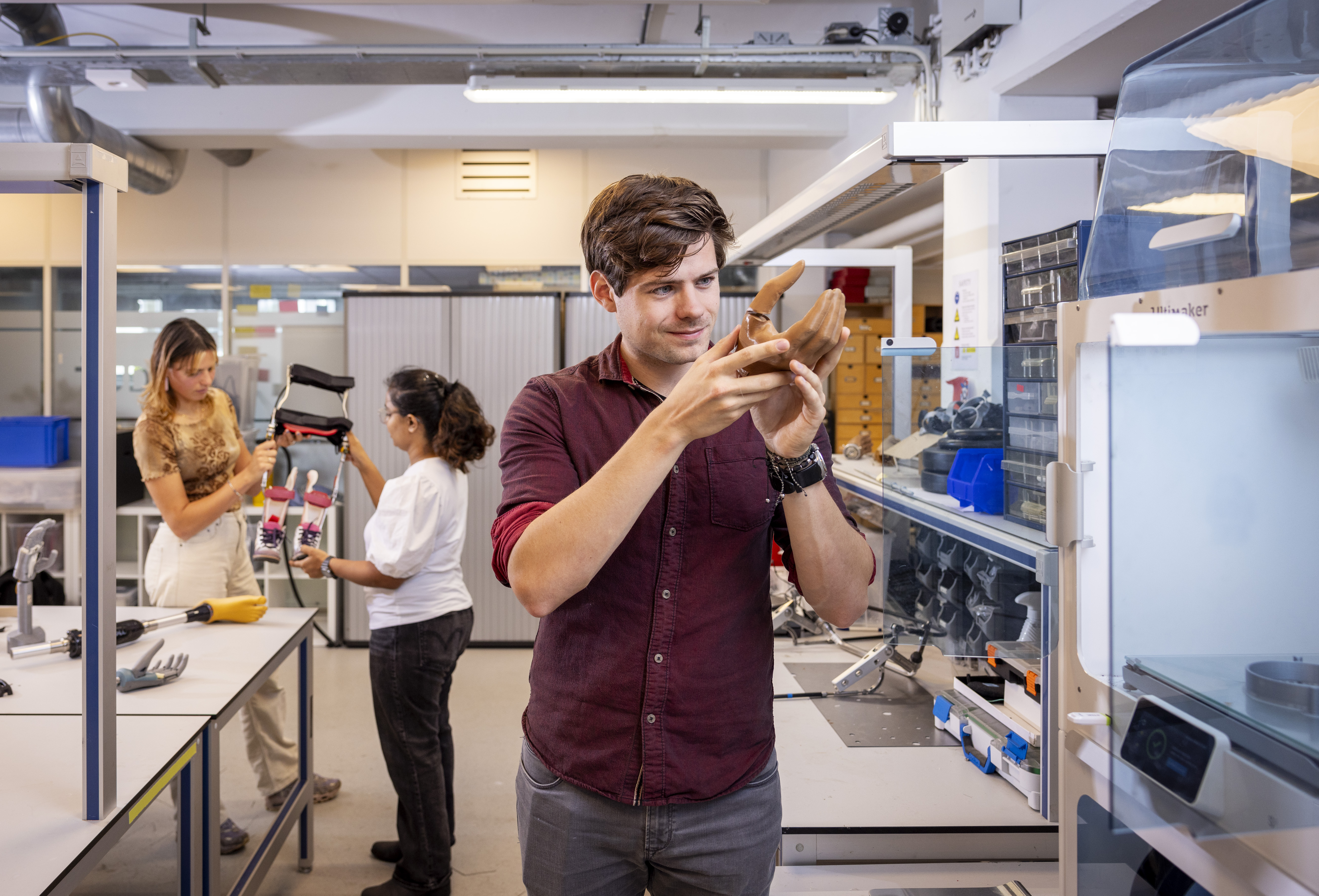Track: BioMechanical Design
BioMechanical Design deals with the interaction of mechanical technology with biological systems. This means investigating human movement, perception, and control characteristics from a mechanical engineering perspective, and developing both the mechanical design skills and the knowledge of control theory necessary to develop robust and adaptive systems that can interact effectively with the messy, soft, and unpredictable world of human beings. In contrast to the more clinically oriented MSc programme in Biomedical Engineering, BioMechanical Design focuses on the engineering challenges of learning from biological systems for engineering applications.
Degree
Master of Science in Mechanical Engineering
Accreditation
Accredited by the NVAO
Credits
120 ECTS, 24 months
Type
Regular study programme
Language of instruction
English
BioMedical Engineering or BioMechancial Design?
In contrast to the more clinically oriented MSc Programme in Biomedical Engineering, this track focuses on the engineering challenges of designing bio-inspired robots, fine-mechanical systems, automobille driver support and training systems, haptic interfaces, and tools for top athletes. Students will receive an advanced education in the design and engineering of robotic devices, mechatronic design, control engineering and biological principles. Students are encouraged to select courses from other departments, faculties or even universities, if appropriate.
Watch the Master Event presentation:
Master students in Delft can choose between two programmes: the master's programme BioMedical Engineering (BME) and the Mechanical Engineering track BioMechanical Design (BMD).
-
TU Delft offers two educational programmes in the field of biomedical engineering; the BioMechanical Design (BMD) track, as part of the Master's Programme in Mechanical Engineering, and the Master's Programme in Biomedical Engineering (BME).
The Biomechanical Design track, as described here, focuses on biomechanics, control engineering, and the design of mechanisms.
The Master's Programme in BioMedical Engineering focuses on more clinically oriented courses geared toward design and/or research work in the medical industry.
Degree
Successful BME students are awarded an MSc degree in BioMedical Engineering, with their chosen specialisation listed on the certificate. BMD graduates receive an MSc degree in Mechanical Engineering, on which the track (BioMechanical Design) is also listed.More information
- BioMedical Engineering (BME)
- Digital studyguide
Select in blue area:
- Organization: Mechanical Engineering
- Education type: Master
- Education: master of your choice
